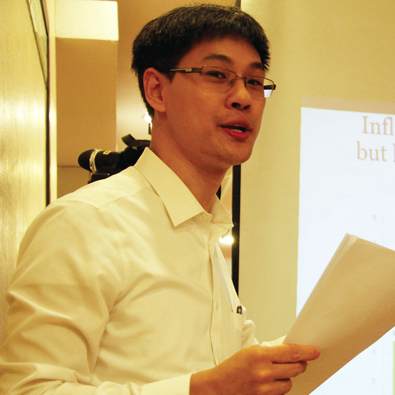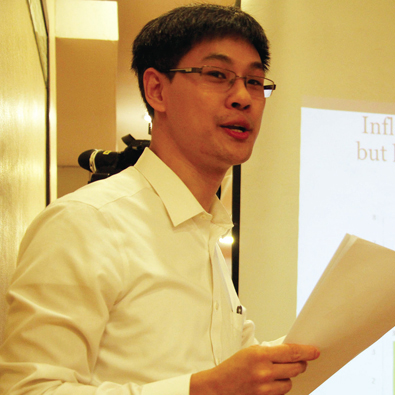
THE country’s world-class labor force will make it possible for the Philippines to recover from this pandemic, according to the National Economic and Development Authority (Neda).
Socioeconomic Planning Secretary Karl Kendrick T. Chua said on Tuesday efforts to pursue long-standing structural reforms will also be crucial in the country’s recovery.
These reforms include the passage of key legislation such as the Public Service Act, the Retail Trade Liberalization Act, and the Foreign Investment Act, which were named by the President as priorities of the outgoing administration.
“The Philippines has a very good labor [force]. With these reforms, we can benefit from world class capital, technology, and innovation. The amendments to the Public Service Act will usher in a possibility that we have far better options for telecommunications and transportation. These two are very important to the lives of the ordinary people,” Chua said in a statement.
The three bills will also help attract investments in key industries to support digital transformation and improve the country’s telecommunication services.
“In particular, opening up the telecommunications sector, through the Public Service Act, will help improve Internet
services and strengthen our foundation for digitalization. With better and cheaper Internet, digital services like cloud computing will be more viable,” Chua added.
Apart from these, Chua said in a forum on Tuesday, efforts to recover from this pandemic include the digital transformation of the government and businesses.
Chua said data science, analytics, and digital transformation can help make better policies and deliver better services as the Philippines heads to a new and better normal.
“I have always believed and advocated for digital transformation within the government in order to strengthen policy-making and service delivery. The government and businesses alike need to use data science to make better policies. This has become even more urgent in the new normal,” Chua said.
The Neda chief said digitalization is crucial in a pandemic when social protection programs need to be efficiently delivered using information and communications technology (ICT).
He recounted that the biggest challenge in implementing the social amelioration program (SAP) for 18 million families and the small business wage subsidy (SBWS) for 3.1 million workers was how these critical emergency responses can reach the people, most of whom were unbanked or without access to formal financial services.
Chua lamented that at the height of the crisis, there was no single registry or database of Filipinos to identify beneficiaries.
Further, he said, some 71 percent of the total adult population did not have bank accounts, making it difficult to efficiently disburse subsidies.
“This is why the President gave the directive to accelerate the implementation of the Philippine Identification System or PhilSys to provide all Filipinos a unique and digitized ID,” Chua said.
Infra, lockdown
Economists, however, expressed misgivings about the administration’s aim to complete its infrastructure projects on time and are concerned about the looming lockdown.
In terms of the infrastructure program, Action for Economic Reforms (AER) Coordination Filomeno Sta. Ana III told the BusinessMirror that there is little time to complete all the administration’s flagship projects.
Sta. Ana, however, said that along with the President, he hoped passing reform bills would be realized. These bills include those on investments, taxation, improving the pension system, and public health, among others.
“What he presented seems to be a wish list. Whether the wish could be fulfilled entirely in a short time frame, an election year at that is open to speculation,” Sta. Ana said. “We are not in dreamland.”
For his part, former Socioeconomic Planning Secretary Romulo L. Neri said that while there is limited time to complete the projects, the “bureaucratic delays in government” will also be a factor.
The spread of the Delta variant, Neri said, is a “serious threat” and would be a cause for another lockdown.
He said this is the reason for the importance of using medicines such as Ivermectin. Relying on vaccination alone would not be sufficient since it has a “lower efficacy against the newer virus strains.”
“In fact, I suspect the reason for our stabilizing the case rate may be because of people using Ivermectin. All the more when the Delta variant incidence increases,” Neri said.
Lockdown’s impact
On Monday, local economists expressed concern that another strict lockdown would not only result in deeper economic contraction but could also worsen poverty and hunger.
They issued the statement after President Duterte said in his last SONA that should the Delta variant of Covid-19 spread, he would be “more strict” on mobility restrictions.
De La Salle University’s Maria Ella Oplas said this is a cause for concern especially since many Filipinos are “barely surviving” with dwindling savings while millions remain jobless.
UnionBank Chief Economist Ruben Carlo O. Asuncion said the spread of the Delta variant will cloud recovery prospects especially in the second half. UnionBank expects the economy to grow by an average of 6 percent in July to December.
With the possibility of another lockdown, Ateneo Center for Research and Development Associate Director Ser Percival K. Peña-Reyes told the BusinessMirror the government must remember the importance of tradeoffs.
Peña-Reyes noted that as it is, the government is already “trying to muster” its resources just to address the crisis. Eventually, this will have an impact on the country’s debts moving forward.
However, Peña-Reyes said, there is a need to instead spend the government’s borrowings on key factors that will boost recovery efforts such as vaccines.

